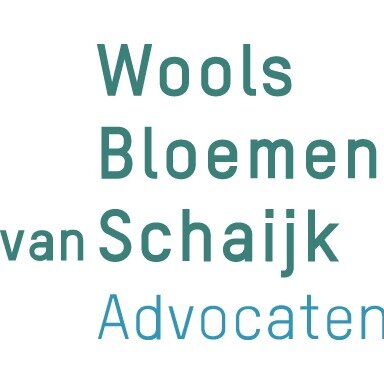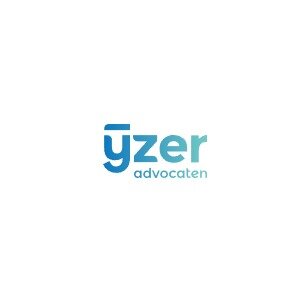Best Conveyancing Lawyers in Nijmegen
Share your needs with us, get contacted by law firms.
Free. Takes 2 min.
Free Guide to Hiring a Real Estate Lawyer
List of the best lawyers in Nijmegen, Netherlands
About Conveyancing Law in Nijmegen, Netherlands
Conveyancing in Nijmegen refers to the legal process involved in transferring ownership of real estate property from one party to another. In the Netherlands, conveyancing is a specialized area of law managed primarily by notaries (notaris), who ensure that all legal requirements are fulfilled during property transactions. In Nijmegen, as in the rest of the country, the process protects the interests of both buyers and sellers and must adhere strictly to Dutch property and contract law regulations.
The conveyancing process involves various steps, including drafting and reviewing the purchase agreement, conducting due diligence, arranging for registration in the public register (Kadaster), and handling all financial aspects related to the transaction. The process is highly regulated to ensure transparency, legal certainty, and protection against fraud.
Why You May Need a Lawyer
While Dutch law requires the involvement of a certified notary in most property transfers, there are several situations where hiring a lawyer is advisable:
- If you are dealing with complex property issues, such as inheritance, divorce-related sales, or co-ownership divisions.
- If disputes arise regarding boundaries, easements, or shared ownership.
- If you are a foreigner unfamiliar with Dutch property law and language barriers might hinder your understanding of the process.
- If there are questions regarding land use, zoning, or planning permissions.
- If you wish to ensure compliance with all tax implications of buying or selling property.
- If you suspect misrepresentation or fraud by the other party.
Legal professionals provide advice, negotiate terms, review contracts, and represent your interests if complications arise.
Local Laws Overview
Conveyancing in Nijmegen is governed by national laws, with the primary regulations outlined in the Dutch Civil Code (Burgerlijk Wetboek). Key aspects relevant to conveyancing include:
- All property transfers must be officiated by a Dutch notary, who prepares and registers the deed of transfer.
- Ownership changes become legally effective only after registration at the Kadaster (Land Registry).
- The preliminary purchase agreement (koopovereenkomst) has legal effect but allows for a statutory three-day cooling-off period for private buyers.
- Buyers are responsible for due diligence, including checking for encumbrances and outstanding mortgages.
- Sellers are obligated to provide complete and honest information about the property’s condition and legal status.
- Transfer tax (overdrachtsbelasting) is applicable in most residential property transactions.
- Additional local regulations or municipal requirements may apply within Nijmegen regarding zoning or historical properties.
It is important to seek tailored advice as procedures may vary for specific types of property, such as apartments, new builds, or commercial spaces.
Frequently Asked Questions
What is the role of a notary in my property purchase in Nijmegen?
The notary prepares and verifies all legal documents, ensures parties' identities and intentions, conducts checks in the land registry, manages the financial transactions, and registers the ownership change at the Kadaster.
Do I need to hire a separate lawyer if a notary is already involved?
While not required, a lawyer can provide independent legal advice, especially in complex cases or if you want added confidence that your interests are protected.
What is the three-day cooling-off period?
After signing the purchase agreement, private buyers have three days to reconsider and withdraw from the contract without penalty.
How long does the conveyancing process usually take in Nijmegen?
The process typically takes between six to twelve weeks, but timing can vary depending on due diligence, financing, and individual circumstances.
What is the Kadaster?
The Kadaster is the Dutch land registry where all details concerning land ownership, boundaries, and mortgages are officially recorded.
What are the main costs involved in conveyancing?
Costs include notary fees, registration costs, transfer tax, and legal fees if you engage a lawyer. These should be outlined transparently before the process begins.
What happens if issues like unpaid taxes or mortgages arise after purchase?
It is the notary’s duty to confirm that the property is clear of such encumbrances at the time of transfer. Proper due diligence prevents post-sale surprises.
Can foreign nationals buy property in Nijmegen?
Yes, foreigners can buy property in the Netherlands, but they may face additional administrative steps or financing requirements. Legal guidance is recommended.
Are verbal agreements binding in conveyancing?
No, property transfers must be in writing and signed before a notary to be legally valid in the Netherlands.
Is it possible to cancel a property transaction?
Cancellation can occur during the cooling-off period or under specific circumstances stated in the purchase agreement, but consult a lawyer to review your rights and potential penalties.
Additional Resources
- Het Kadaster (Dutch Land Registry): Public information about land registration and property data.
- De Koninklijke Notariële Beroepsorganisatie (KNB): The Royal Dutch Association of Civil-law Notaries, which provides resources about notarial procedures.
- Gemeente Nijmegen (City of Nijmegen): Local municipal office for zoning, planning, and municipal regulations related to real estate.
- Consumentenbond and Vereniging Eigen Huis: Dutch consumer organizations offering extensive practical guidance for home buyers and sellers.
Next Steps
If you are considering buying or selling property in Nijmegen or facing legal issues related to conveyancing, follow these steps:
- Gather all available documents related to the property, such as title deeds, plans, and existing contracts.
- Identify the type of advice or assistance you require, whether it is general guidance, contract review, or representation in negotiations or disputes.
- Contact a reputable notary or real estate lawyer in Nijmegen experienced in conveyancing and Dutch property law.
- Arrange a consultation to discuss your situation and understand the costs and procedures involved.
- Ensure you receive clear written agreements about legal services and fees before proceeding.
- If you are a non-Dutch speaker, inquire about language support or translation services.
Taking these steps ensures that your property transaction in Nijmegen is legally secure, transparent, and optimally protects your interests.
Lawzana helps you find the best lawyers and law firms in Nijmegen through a curated and pre-screened list of qualified legal professionals. Our platform offers rankings and detailed profiles of attorneys and law firms, allowing you to compare based on practice areas, including Conveyancing, experience, and client feedback.
Each profile includes a description of the firm's areas of practice, client reviews, team members and partners, year of establishment, spoken languages, office locations, contact information, social media presence, and any published articles or resources. Most firms on our platform speak English and are experienced in both local and international legal matters.
Get a quote from top-rated law firms in Nijmegen, Netherlands — quickly, securely, and without unnecessary hassle.
Disclaimer:
The information provided on this page is for general informational purposes only and does not constitute legal advice. While we strive to ensure the accuracy and relevance of the content, legal information may change over time, and interpretations of the law can vary. You should always consult with a qualified legal professional for advice specific to your situation.
We disclaim all liability for actions taken or not taken based on the content of this page. If you believe any information is incorrect or outdated, please contact us, and we will review and update it where appropriate.









